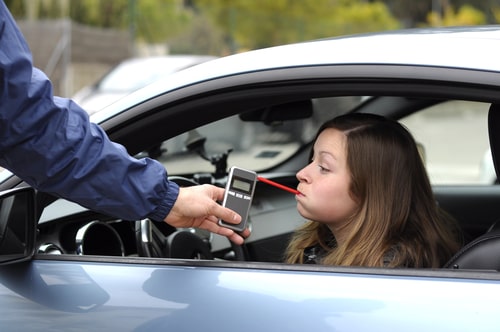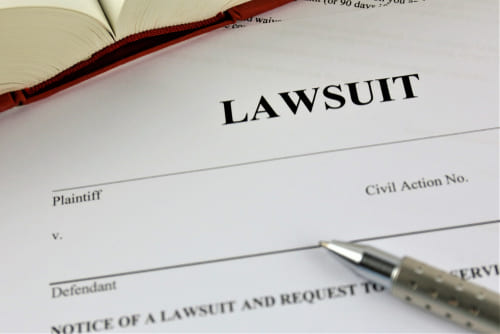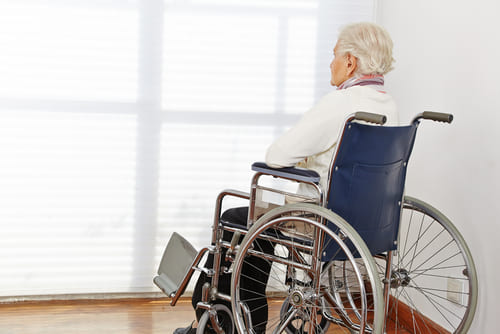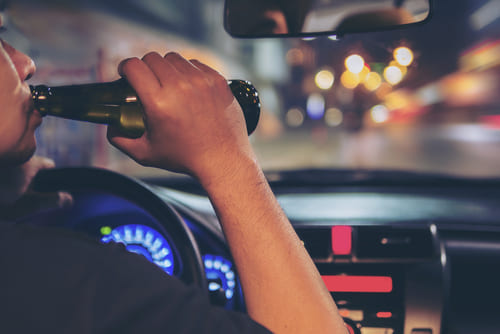Recent Blog Posts
Do Penalties Get Worse the More DUI Offenses You Have?
 Driving under the influence (DUI) of alcohol or drugs can result in serious consequences in the state of Illinois. A lot of factors are taken into consideration when your punishment is determined: How old are you? What was your blood alcohol content at the time of your DUI arrest? Were you transporting others at the time, and if so were they minors? Did you cause a crash resulting in damages or injury? One factor that will almost always result in a harshening of the penalties is whether you had prior convictions of the same charge. If you are convicted of a felony charge or aggravated DUI, a Will County, IL DUI defense attorney can fight for your legal rights and formulate a good strategy to represent your case.
Driving under the influence (DUI) of alcohol or drugs can result in serious consequences in the state of Illinois. A lot of factors are taken into consideration when your punishment is determined: How old are you? What was your blood alcohol content at the time of your DUI arrest? Were you transporting others at the time, and if so were they minors? Did you cause a crash resulting in damages or injury? One factor that will almost always result in a harshening of the penalties is whether you had prior convictions of the same charge. If you are convicted of a felony charge or aggravated DUI, a Will County, IL DUI defense attorney can fight for your legal rights and formulate a good strategy to represent your case.
How Are DUIs Punished?
If your blood alcohol content is at least 0.08 grams per deciliter, you are above the legal BAC limit for driving. Your penalties will differ depending on whether these were your results or you refused to undergo any chemical testing. However, it is important to note that in the state of Illinois, being a licensed driver means you have already given automatic consent to undergo chemical testing of your blood, breath, or urine.
Firefighters, Burns Injuries, and Illinois Workers’ Comp Eligibility
 When people get injured while at work, they can typically make a workers’ compensation claim and receive compensation for whatever damages they have suffered. Some professions pose a particularly high risk of severe injury to employees. For example, firefighters who rush into buildings that are on fire to save people and property face a risk of severe burns as part of their daily work routine. That does not mean they do deserve less protection against potentially devastating financial losses than others. If you are a firefighter who has suffered major burn injuries while doing your job, a skilled Will County, IL workers’ compensation attorney can review your case and advise you on how to proceed.
When people get injured while at work, they can typically make a workers’ compensation claim and receive compensation for whatever damages they have suffered. Some professions pose a particularly high risk of severe injury to employees. For example, firefighters who rush into buildings that are on fire to save people and property face a risk of severe burns as part of their daily work routine. That does not mean they do deserve less protection against potentially devastating financial losses than others. If you are a firefighter who has suffered major burn injuries while doing your job, a skilled Will County, IL workers’ compensation attorney can review your case and advise you on how to proceed.
What Should I Do if I Get Burned at Work?
There are several steps you should take if you get injured at your job and want to pursue a workers’ compensation claim. These include:
Understanding Permanent Disability in Illinois
 Most employers in Illinois are required by law to have insurance with workers’ compensation coverage to be used if their employees get hurt at work. Some injuries can be so severe that the employee can never work again. If your loved one got hurt while on the job and will not be able to reenter the workforce, he might be eligible for total disability benefits. However, the insurance companies that employers use often fight such claims and do whatever they can to avoid paying. Speak with a qualified Joliet, IL workers’ compensation lawyer to understand your options.
Most employers in Illinois are required by law to have insurance with workers’ compensation coverage to be used if their employees get hurt at work. Some injuries can be so severe that the employee can never work again. If your loved one got hurt while on the job and will not be able to reenter the workforce, he might be eligible for total disability benefits. However, the insurance companies that employers use often fight such claims and do whatever they can to avoid paying. Speak with a qualified Joliet, IL workers’ compensation lawyer to understand your options.
What Causes Permanent Disability?
Anyone can be injured at any time regardless of what they do for a living. People who work regular 9-5 jobs sitting at a desk can be seriously harmed and eligible for workers’ compensation if, for example, improperly installed office equipment falls on them. However, when discussing permanent disability, there are some higher-risk professions like police officers, truck drivers, and construction workers, for whom there is a higher chance of severe injury.
What Type of Compensation Can I Receive After a Car Accident?
 Car accidents can be serious, and when you or a loved one are injured in a car accident, you may struggle with extensive medical bills, loss of employment, and other financial troubles that mean you need to seek compensation. Pursuing a compensation claim can be complex, which is why you need an experienced Illinois car accident attorney on your side to help you with this process and advocate for you to receive the maximum amount of compensation possible.
Car accidents can be serious, and when you or a loved one are injured in a car accident, you may struggle with extensive medical bills, loss of employment, and other financial troubles that mean you need to seek compensation. Pursuing a compensation claim can be complex, which is why you need an experienced Illinois car accident attorney on your side to help you with this process and advocate for you to receive the maximum amount of compensation possible.
What Your Compensation Claim May Cover
A claim for compensation after a car accident typically falls into the category of a personal injury claim. Illinois law separates the potential damages you can receive in this type of claim into two categories – economic and non-economic.
How Do I Spot Abuse In an Illinois Nursing Home?
 Many of us leave our elderly loved ones in nursing homes and other care facilities, and the proper care of our family members is typically one of the most important things we can imagine. However, nursing home assault and abuse do occur, and it is important to know how to spot abuse, in addition to what to do if you suspect this has occurred to your loved one.
Many of us leave our elderly loved ones in nursing homes and other care facilities, and the proper care of our family members is typically one of the most important things we can imagine. However, nursing home assault and abuse do occur, and it is important to know how to spot abuse, in addition to what to do if you suspect this has occurred to your loved one.
An experienced Illinois nursing home abuse lawyer specializing in personal injury cases can help you pursue a claim against a nursing home facility or the person responsible for the assault.
Identifying Nursing Home Assault and Abuse
Keeping an eye out for the common signs of nursing home assault and abuse is essential when visiting your loved one, as your family members may not be able to speak for themselves or properly verbalize the treatment they experience when you are not around.
Do I Have an Illinois Wrongful Death Case?
 Wrongful death occurs when someone dies due to the negligence or recklessness of another individual. There are many different ways that wrongful deaths occur, and the loved ones of a victim of wrongful death are often stuck with traumatic emotions and extensive medical and funeral expenses. In many wrongful death cases, survivors of the victim may be eligible for compensation to cover these expenses. If you are wondering if you have a wrongful death case on your hands, an Illinois wrongful death attorney can provide you with further guidance.
Wrongful death occurs when someone dies due to the negligence or recklessness of another individual. There are many different ways that wrongful deaths occur, and the loved ones of a victim of wrongful death are often stuck with traumatic emotions and extensive medical and funeral expenses. In many wrongful death cases, survivors of the victim may be eligible for compensation to cover these expenses. If you are wondering if you have a wrongful death case on your hands, an Illinois wrongful death attorney can provide you with further guidance.
When Can a Wrongful Death Lawsuit Be Filed?
The most important factor in a wrongful death lawsuit is the fact that the death occurred due to a negligent or wrongful act of another. This may be another individual, a public entity, or a corporation. Even if the negligent act was an accident, the responsible party may still be brought to justice.
What Should I Do After a Dog Bite in Illinois?
 Dogs are popular companions for many people, and for the most part, interactions with dogs are no big deal. However, some dogs have behavioral issues that may cause them to bite, while others may bite as a result of owner negligence. When dog bites happen, it is natural to feel confusion about what to do, especially if you know the dog’s owner. In addition to contacting an experienced Illinois dog bite injury lawyer to handle a dog bite case, it is important to know what to do immediately after a dog bite occurs.
Dogs are popular companions for many people, and for the most part, interactions with dogs are no big deal. However, some dogs have behavioral issues that may cause them to bite, while others may bite as a result of owner negligence. When dog bites happen, it is natural to feel confusion about what to do, especially if you know the dog’s owner. In addition to contacting an experienced Illinois dog bite injury lawyer to handle a dog bite case, it is important to know what to do immediately after a dog bite occurs.
First Steps After a Dog Bite
Dog bites can be unexpected and may trigger panic, pain, and fear. It is important to remember to stay calm after a dog bite so you can take the necessary steps to document the attack and make sure medical care is received.
The first steps you should take after a dog bite include:
-
Get away from the dog and not chasing the dog who bit you
When Are Illinois Traffic Violations Serious?
 Traffic tickets and violations are a common occurrence, and receiving a ticket for speeding or failing to stop at a stop sign may seem like no big deal. However, letting traffic tickets and violations add up or committing more serious traffic violations in Illinois can lead to serious consequences, such as costly fines, loss of a driver’s license,and even jail time. An Illinois traffic violation defense attorney can help you fight your tickets and reduce penalties when possible.
Traffic tickets and violations are a common occurrence, and receiving a ticket for speeding or failing to stop at a stop sign may seem like no big deal. However, letting traffic tickets and violations add up or committing more serious traffic violations in Illinois can lead to serious consequences, such as costly fines, loss of a driver’s license,and even jail time. An Illinois traffic violation defense attorney can help you fight your tickets and reduce penalties when possible.
What Are the Penalties for Illinois Traffic Violations?
The penalties for Illinois traffic violations vary depending on the type of violation committed and certain factors surrounding the traffic violation, such as being in a school zone when the violation occurred or driving recklessly.
Are First-Time DUI Convictions Serious?
 DUI convictions in Illinois can be serious, even if you are encountering a DUI conviction for the first time. These convictions can go on your criminal record and make it difficult to find housing, employment, and even certain types of loans, in addition to making it difficult to pass background checks. Any DUI conviction should be taken seriously, even first-time convictions, and an experienced Illinois DUI defense lawyer can help you navigate this conviction in court.
DUI convictions in Illinois can be serious, even if you are encountering a DUI conviction for the first time. These convictions can go on your criminal record and make it difficult to find housing, employment, and even certain types of loans, in addition to making it difficult to pass background checks. Any DUI conviction should be taken seriously, even first-time convictions, and an experienced Illinois DUI defense lawyer can help you navigate this conviction in court.
What Can I Expect for a First-Time DUI Conviction?
Under Illinois law, a first-time DUI conviction is typically categorized as a Class A misdemeanor. This is the most severe type of misdemeanor, and this type of conviction comes with certain consequences, such as:
Can I Be Arrested for Drowsy Driving?
 Many people may do it, but drowsy driving is a dangerous way to operate a motor vehicle. Drowsy driving can count as distracted driving, and you may earn tickets or citations for driving while drowsy. Additionally, drowsy driving may lead to car accidents that injure you or those in other vehicles. If you have been injured in a car accident caused by a drowsy driver, you should speak with an experienced Illinois car accident attorney right away.
Many people may do it, but drowsy driving is a dangerous way to operate a motor vehicle. Drowsy driving can count as distracted driving, and you may earn tickets or citations for driving while drowsy. Additionally, drowsy driving may lead to car accidents that injure you or those in other vehicles. If you have been injured in a car accident caused by a drowsy driver, you should speak with an experienced Illinois car accident attorney right away.
Is Drowsy Driving Dangerous?
Drowsy driving might not seem like the most dangerous thing, but driving while fatigued is actually a very bad idea. Drowsy driving is often classified as distracted driving, as driving when you are tired prevents you from being able to react quickly, focus on the road, and be fully aware when you drive. You may even experience ‘micro-sleep’ where you fall asleep at the wheel for short periods of time.
 815-727-0100
815-727-0100













